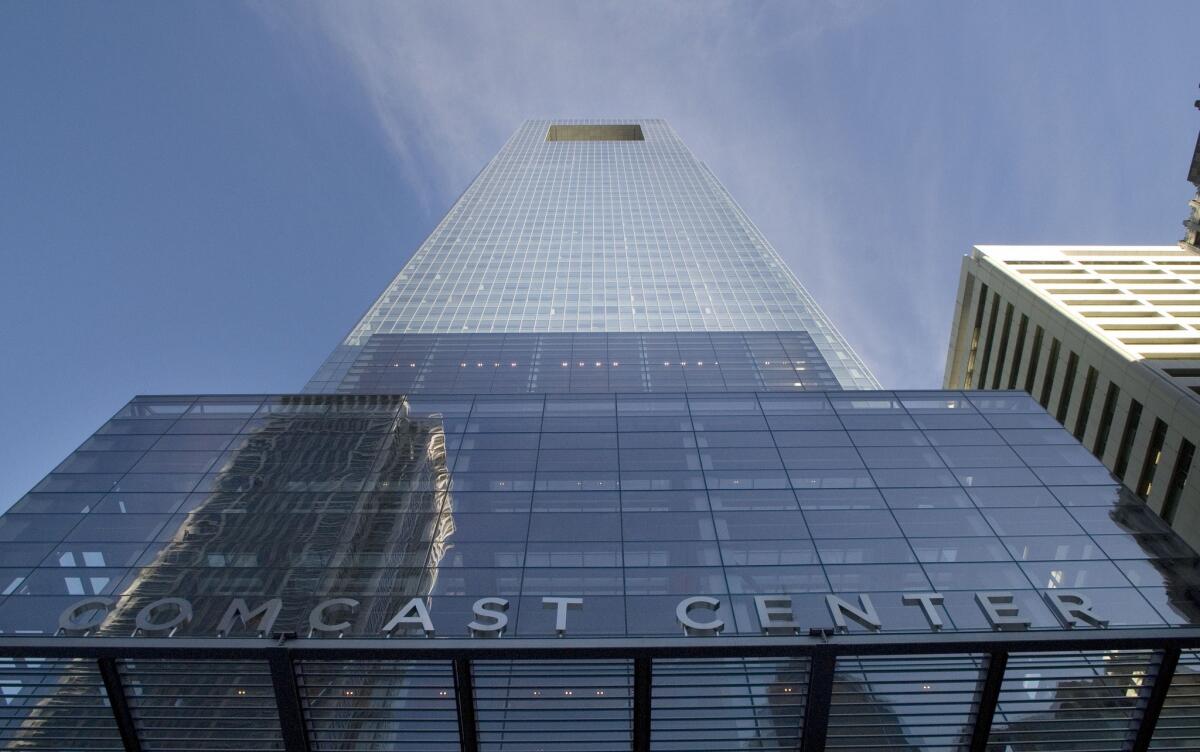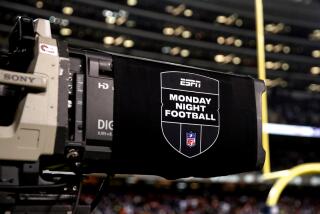New FCC definition of high-speed Internet may affect Comcast-TWC deal

The Federal Communications Commission’s new definition of high-speed Internet service could become a factor in Comcast Corp.’s proposed takeover of Time Warner Cable.
The FCC and the U.S. Department of Justice are reviewing the Comcast-Time Warner Cable tie-up, which would include nearly 1.8 million homes in the Los Angeles region. The government agencies are working to determine whether the combination of the nation’s two largest cable companies is in the public interest and whether it poses a threat to competition.
Separately, the FCC this week approved a new benchmark for broadband Internet download speed at 25 megabits per second, up from 4 megabits per second.
The Thursday vote by the FCC was part of the agency’s 2015 Broadband Progress report, which found that deployment of high-speed Internet in the U.S. — particularly in rural regions — was not keeping up with current needs, including “high-quality voice, data, graphics and video offerings.”
The FCC is trying to prod telecommunications companies to extend and upgrade their networks.
Comcast was one of the few companies that provide customers with Internet speeds of 25 megabits per second or higher, which means the company already had a large percentage of broadband homes.
But the FCC’s move to raise the benchmark had the effect of increasing Comcast’s broadband penetration to about 50% of the nation’s broadband homes. The percentage could be higher, depending on the estimate.
Opponents of the deal said Friday the FCC’s new benchmarks could make it tougher for Comcast to win the government’s blessing for its merger.
“The FCC is taking broadband Internet very seriously,” said John Bergmayer, senior staff attorney for the advocacy group Public Knowledge, which opposes the merger. “The notion that Comcast has a dominant share of broadband is definitely relevant — it shows there is a lack of broadband competition.”
Whether Comcast’s high-speed Internet penetration becomes a pivotal issue depends on whether the government determines that Internet service is a national, rather than local, market. In past reviews, the government has looked at the number of options that consumers have in individual markets.
Comcast declined to comment Friday.
Comcast has argued that the proposed merger should not be considered anti-competitive because Comcast and Time Warner Cable offer service in different geographic markets.
The Philadelphia giant also has rejected assertions that broadband providers compete nationally.
“Consumers choose broadband providers at the local — not national — level,” Comcast Executive Vice President David Cohen wrote in a Dec. 23 blog post. “The transaction will have no impact on local broadband shares and will in no way reduce the number of broadband choices available to consumers.”
Cohen noted that observers should not ignore previous FCC and Department of Justice determinations. And even if they did, he said, the addition of the Time Warner Cable homes would increase Comcast’s broadband market share by “only 1%.”
Twitter: @MegJamesLAT
More to Read
From the Oscars to the Emmys.
Get the Envelope newsletter for exclusive awards season coverage, behind-the-scenes stories from the Envelope podcast and columnist Glenn Whipp’s must-read analysis.
You may occasionally receive promotional content from the Los Angeles Times.







